Salmon crisis triggered by ‘questionable evidence’ on skate, says report
The long-running saga over salmon farming in Tasmania’s Macquarie Harbour was triggered by green groups on ‘questionable’ and ‘thin’ evidence, a new report finds.
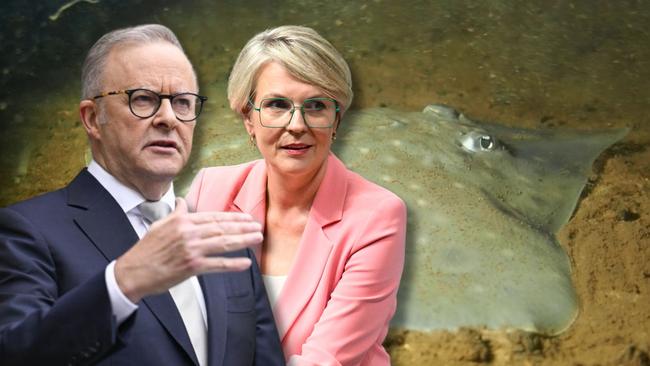
Claims linking salmon farms to the potential extinction of a skate that have endangered Labor’s electoral standing in Tasmania and inflamed tensions between Anthony Albanese and his cabinet rival Tanya Plibersek have been dismissed as “questionable” and “thin”, with a major report suggesting the species was “weaponised” by activists.
A paper by University of Tasmania professor emeritus of government Aynsley Kellow argues there is “no certainty” the Maugean skate was not already at risk of extinction, before salmon farms were introduced to Macquarie Harbour.
His findings cast doubt over the need for the long-running political and legal standoff over the harbour, which the industry warned placed hundreds of jobs at risk, created uncertainty and threatened to derail the Prime Minister’s fight to hold onto key Tasmanian marginal seats.
“It is not clear that aquaculture and the skate cannot coexist, and even if salmon farming in Macquarie Harbour were to be prohibited, that would not guarantee the survival of a species with highly limited population numbers and habitat,” Professor Kellow concludes.
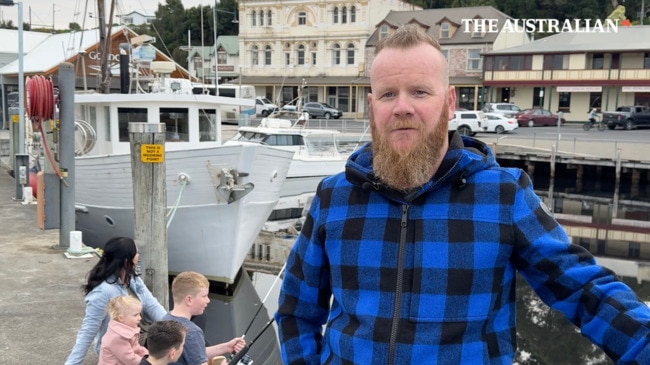
The report – ‘Skating over thin evidence: The weaponisation of endangered species laws in the Tasmanian salmon wars’ – points to recent surveys suggesting the skate has recovered to levels not seen in a decade.
As well, it says the same ancient stingray-like species became extinct in another Tasmanian waterway – Bathurst Harbour – where there were virtually no human impacts, much less fish farms.
“So it is not clear that ceasing salmon farming in Macquarie Harbour would ensure its survival there,” his report, published by the Institute of Public Affairs, concludes.
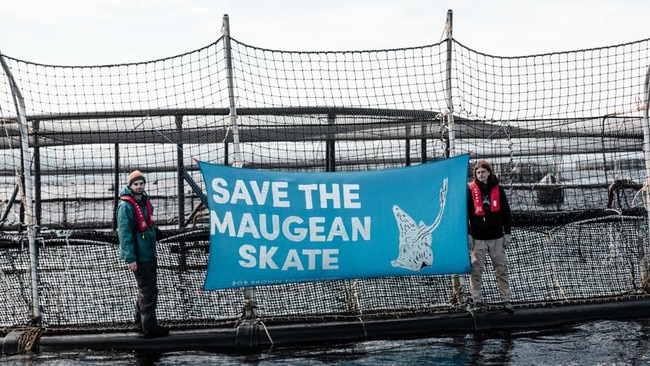
Ms Plibersek in November 2023 accepted a request by green groups under the Environment Biodiversity and Conservation Act to reconsider 2012 approvals for expanded salmon farms in the harbour.
Accepting government scientific advice that salmon farm impacts on water oxygen levels were “catastrophic” for the endangered skate, the Environment Minister flagged the need to “lower” salmon loads.
Industry concerns about the rethink prompted Mr Albanese to pass election-eve legislation and quash Ms Plibersek’s review, although uncertainty has returned with the Bob Brown Foundation challenging the changes in the Federal Court.
Tasmania’s “salmon wars”, fuelled by the Macquarie Harbour saga, continue to influence the battle for Tasmanian seats, with federal Agriculture Minister Julie Collins facing an anti-salmon independent backed by Climate 200.
The skate saga is also being used by the Coalition to question Labor’s commitment to traditional industries in marginals, including Lyons, Bass and Braddon, while teals have called for tougher environmental laws.
Professor Kellow is a foundation professor of the Australian School of Environmental Studies at Griffith University and former expert reviewer for the impacts, adaptation and vulnerability working group of the United Nations Intergovernmental Panel on Climate Change.
He told The Australian the Macquarie Harbour case pointed to the need to apply stronger tests to claims by green groups and to broaden the scientific evidence relied upon by the minister.
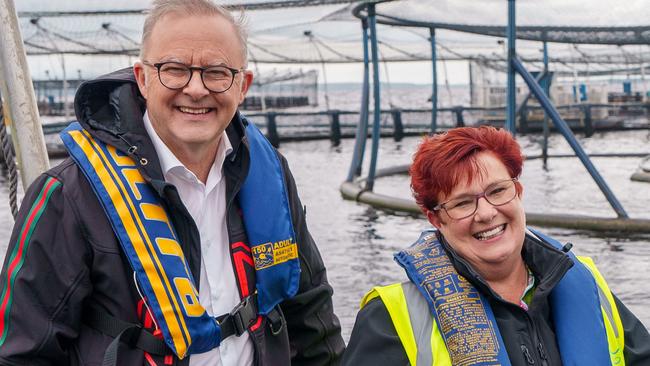
The Australia Institute – which with the BBF and Environmental Defenders Office triggered the Plibersek review – rejected Professor Kellow’s conclusions, arguing the EPBC Act was slacked in favour of industries.
“Australia’s environment laws are meant to protect nature, but in reality, only facilitate extractive industries and development,” the institute’s Tasmania director Eloise Carr said.
“We saw this when, as soon as the law looked like protecting an endangered species, the government stepped in to defend a foreign-owned industry.”
The BBF also stood by its actions and the need to remove fish pens from Macquarie Harbour. “The federal government scientific advice couldn’t have been more clear: fish farms in Macquarie Harbour are a catastrophic impact on the survival of the Maugean skate,” said BBF marine campaigner and Greens candidate for Lyons, Alistair Allan.
“Macquarie Harbour has always been the only known home for the Maugean skate with a viable population … The EPBC Act needs strengthening – not even more watering down, like we have shamefully seen Albo and Dutton team up to do.”

However, Coalition environment spokesman Jonno Duniam said it was “a travesty” that green groups had been able to cause “devastating anxiety and uncertainty” to salmon workers in the town of Strahan, given “substantial evidence” the industry and skate could coexist.
Senator Duniam said a Dutton government would reform the EPBC Act to limit the standing of green groups to challenge approvals and limit requests for reconsideration of decision to those made within 12 months. “The Albanese government should never have given in to activist groups in this case,” he said.
A Labor campaign spokeswoman defended the government’s handling of the issue. “We have been properly applying the national environment laws that were first put in place by John Howard and the Liberal Party,” the spokeswoman said.
“Just last year, the Albanese Labor government proposed important improvements to those laws, but the Liberals and the Greens party teamed up to stop those changes.”
IPA research director Morgan Begg urged both major parties to address the failings exposed by Professor Kellow.
“This election, Australia’s political leaders cannot avoid the prevailing situation in Tasmania where activists are holding the state’s most important industry, and the livelihoods of thousands of salmon workers, to ransom due to failed laws designed to propagate lawfare,” Mr Begg said.
“The Albanese government’s tepid response to the lawfare embroiling salmon farmers on Tasmania’s west coast is a missed opportunity to deal with this vexatious litigation that seeks to disrupt, delay, and destroy vital nation building projects.
“Whoever forms the next government must get on the front foot and stand up for critical industries by reforming the structural flaws in federal environmental laws.”
The IPA argues that between 2000 and 2020 projects with a combined value of $65 billion were put a risk by EPBC-related litigation, while the number of species covered by the legislation grew 63 per cent from 1992 to 2016.
It argues the act, which is seen by all sides in environmental debates as no longer fit for purpose, has become more complex, with a 445 per cent increase in associated regulations from 2000 to 2020.




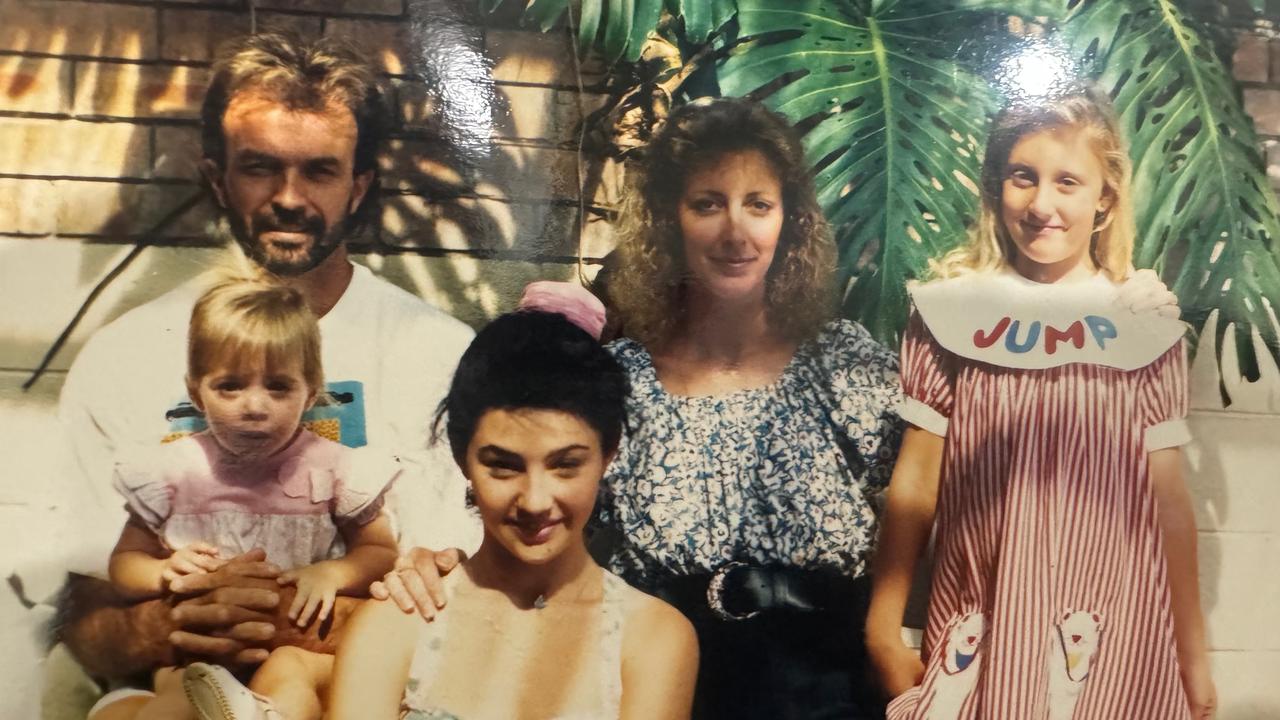

To join the conversation, please log in. Don't have an account? Register
Join the conversation, you are commenting as Logout